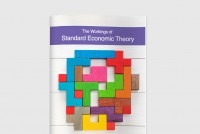The Blockchain Distributed Economy
A central question facing any economic system is how to harness all of the resources available within the society towards productive ends and then distribute the returns in an equitable fashion. Within just the past couple of years, the topic of inequality has moved to the forefront of public discourse within developed economies, where the returns going to the very wealthiest have risen while those going to the middle and lower income have stagnated or declined, leaving many to fundamentally question whether the current economic model is really sustainable. At the same time with the rise of mass automation and smart systems employment has also moved to the forefront of public attention as many jobs are set to be automated in the coming decades. The fallout of these changes is seen as a key factor in current political disruption in the form of the rise of populism
The current issues of inequality are at their core issues of centralized organizational structure; systems that have evolved to concentrate resources at the center and reduce those at the edges thus resulting in a state of inequality and division. A good example of this can be seen in urbanization within developed nations, where the flow of people and resources into cities over the past century has created a concentration of economic activity and reduced opportunities outside of this in the countryside which has, in turn, fed through to divisions in today’s politics.
At the same time that we see this massive centralization of wealth and capabilities, information technology is holding out the possibility for more decentralized forms of economic activity. Given the new possibilities of this technology, the question should not be how can we redistribute resources within the current system – by imposing some regulatory framework onto it – but more how can we leverage information technology to develop distributed systems where resources and capabilities can flow to the edges of networks by design. How can we use the technology we have – and will increasingly have more of – to create platforms and environments where the average person can participate in value creation and exchange, thus binding them into the overall economy and ensuring social stability.










